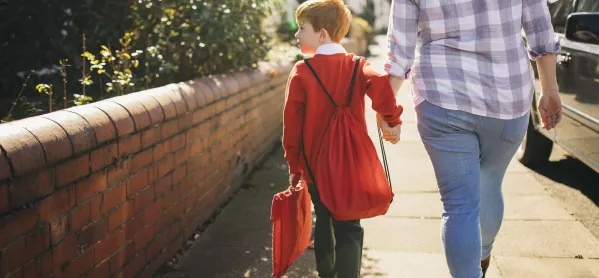It is naive to think that the return to school in 2020 will be the same as any other year. There is the small matter of a worldwide pandemic, the majority of children and young people have been learning at home since March and teachers have been on a steep learning curve with blended and online learning strategies. So, there is a need to be flexible and maybe reconsider what we do in these important first two to three weeks.
I think two factors will be essential in starting the year off effectively: relationships and assessment. Both will be difficult and take time; a lot can happen in five months. They are also interrelated in the classroom, as for useful assessment, relationships are essential. And to establish relationships, an undercurrent of assessment (of mood, of experience, of learning and so on) will be essential.
A soft start would enable some time and space to focus on what we know about good transitions, the (re)building of relationships; time to share experience and progress, and to address issues around adults’ and children’s wellbeing. All of which will be important after such an extended break and unprecedented circumstances. To think a bit differently about the start of term will give schools and teachers a set of permissions and potential practices for a critical consideration of the practices they want to emphasise as they reintroduce children and young people to their school community.
Background: ‘Good progress’ towards reopening schools in August
Coronavirus: School ‘will be a strange place for returning children’
Emerging from lockdown: Should the focus be on children’s behaviour or their feelings?
More from Kate Wall: Teacher CPD
We should not presume the nature of the experience each person has had during lockdown. For some it has been negative, for others positive; for most it has probably been a mixed bag. A presumption that it has been a universal deficit isn’t useful; neither is the rush to “catch up” for more reasons than I have space for here.
Rather, it is important we recognise all children and young people will have learned something during lockdown and will have progressed in some aspects of their learning. All, however, will also have gaps, regardless of how conscientious their home-school experience was. The teachers’ job in these first few weeks of term is to value what has been learned and pinpoint what hasn’t. Some space to do this is essential.
A soft start would need to be flexible across settings here in Scotland; it should be context-specific. Primary schoolchildren will probably have some different needs to the secondary population. But the focus on relationships and assessment should be consistent. In primary schools it might mean returning part time with half of the class in school at one time, resulting in space for the teacher and children to get to know each other and more chances for play-based or outdoor learning, even in schools with limited space, to aid this process.
In secondary schools, it might mean starting the year with small group or one-to-one learning conversations with subject teachers. This would allow young people to share where they are at, their successes and concerns over the past five months, and provide the teacher’s perspective on what they have done and need to do next. If done well, it would mean a targeting of curriculum content for the forthcoming terms which would otherwise be impossible.
Of course, in both these models, there is a need for some sort of blended approach, with further homeschooling implicit within that. But if the children are starting to see and get to know their teachers, and the tasks given are perceived as useful in further developing those cornerstones of assessment and relationships, then I think it will have greater relevance for all, while the feedback loops between home and school will be tightened.
For me, a soft start would be helpful in giving time to focus on both relationships and assessment in a way that sets the year up - as well as creating a teacher-learner bond that will enable resilience through what is likely to be a turbulent term ahead.
Kate Wall is director of postgraduate research at the University of Strathclyde School of Education

